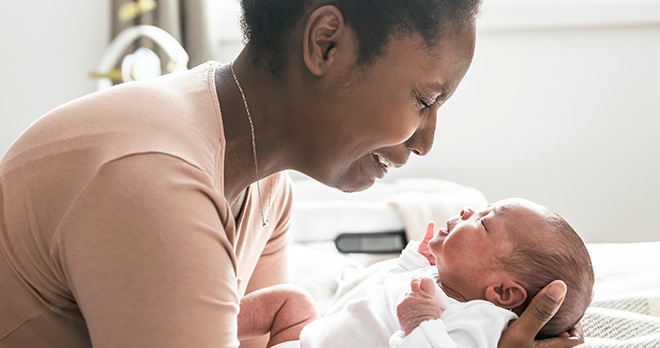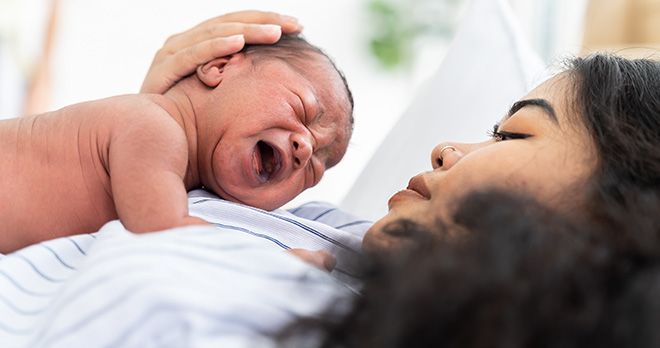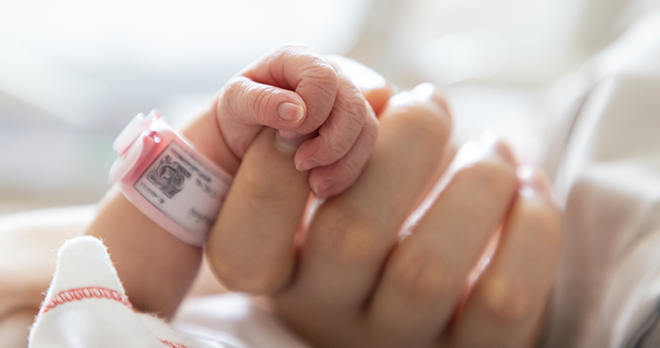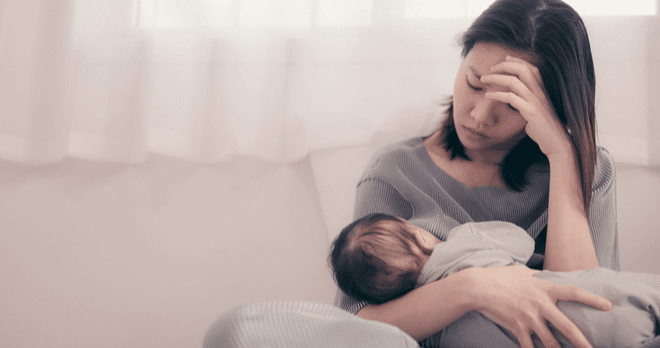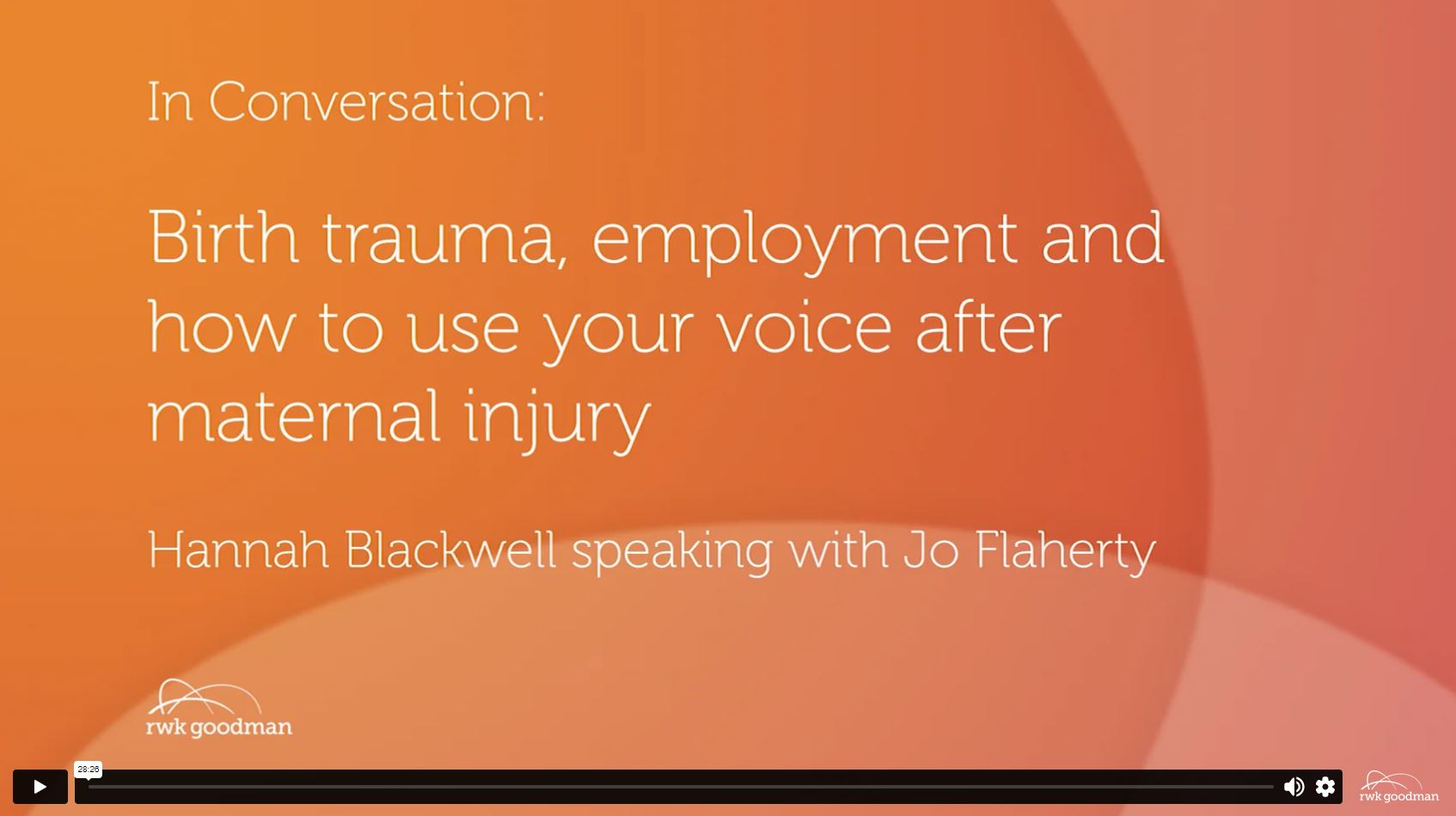How can we Make Birth Better? | Legal Thinking Podcast
In this episode we have the opportunity to hear from a representative of Make Birth Better, Dr Rebecca Moore, who is a founder of the organisation and perinatal psychiatrist who developed a particular interest in birth trauma over the years and actually created the organisation in 2018. We’ve also got Sophie Angwin-Thornes from our clinical negligence team who works a lot with mums who experience birth trauma and basically we are just having a chat with them both about how things are changing, what people are seeing and maybe how the NHS can and is you know trying to address some of the structural problems that are causing birth trauma.
We talk also about some of the barriers for woman trying to access help on this issue, the current pressures facing the maternity services in the UK and we also speak about the survey that came out for Birth Trauma Awareness week which was at the end of July.
Hosts: Thanks for joining us, obviously today we’re going to be talk about birth trauma and the help that women can access or maybe struggle to access and I just wanted to maybe open with you Rebecca to maybe chat about what you are seeing are the barriers to women still in accessing the help they need when they’ve had a birth trauma.
Dr Rebecca Moore: Yes well a lot, unfortunately, for a lot of women still. So there can be barriers in terms of accessing support after you’ve had a traumatic birth, sometimes it might be that you try to access support in a subsequent pregnancy and I think it can be really difficult for women to know how to start those conversations and who to go to that has the expertise to listen to them. Often people try to begin to share their stories and don’t have a particularly good response so there’s lots and lots of hoops sometimes that I think people feel they have to jump through to get support. Sometimes it works really, really well but I think it’s really variable for people across the UK still and it’s still an area where perhaps some people are not very aware of birth trauma and how it might present and how difficult it might be for people to seek support and we’ve said women but it can also be men of course, it can be partners as well so lots and lots of barriers that are still in place and I think particularly at the moment you know we know that everybody is reading in the news that services are very stretched, there’s often long waiting lists, so it can feel like a very, very long time to wait for support when you’re feeling really desperate for that help.
Hosts: You mentioned just there about some of the stresses that are being reported at the moment and I mean there has been media reports of supply chain issues as well causing lack of access to pain relief and epidurals as well as the staffing crisis. Would you like to talk a little bit more about the current pressures on maternity services in the UK?
Dr Rebecca Moore: Yeah well I think we know that even before Covid the pressures were there but Covid has really sort of exacerbated the pressures in maternity and all across the NHS really particularly in terms of people leaving the profession so we hear a lot about midwives and obstetricians leaving so there’s beginning to be gaps in the workforce that aren’t being refilled alongside that we know that there is sort of a backlog of work to be done from Covid but of course the one thing that didn’t stop through Covid was people having babies, that couldn’t be paused or delayed so you know we have a very overstretched, overworked group of people that worked consistently under intense pressure all the way through the pandemic alongside that also you know we have people working in maternity just feeling really exhausted and really burnt out and feeling that they are being asked to do more and more with less and less resources and time. And we know that this is really important particularly when we’re talking about birth trauma because what can happen is that we have people caring for women in labour that are actually traumatised themselves.
There have been a couple of recent studies in the last few years that has shown that there’s huge numbers of midwives and obstetricians that actually have PTSD themselves from all the things that they’ve seen and witnessed at work and when you have somebody looking after you that’s traumatised that can understandably sometimes affect the care that is given and then women perceive that as being not compassionate, or not kind or somebody not really being there for them and then you get this whole kind of circle of trauma going on so really thinking about how we protect and support our maternity staff for me is a really, really important part of how we think about birth trauma as well.
Sophie Angwin-Thornes: That’s really interesting to hear about the vicarious liability and I’m recognising that as a problem within the maternity staff do you think the NHS themselves are recognising that and giving appropriate training and support for the staff to ensure that they are retained and they don’t leave the profession?
Dr Rebecca Moore: I think that there are definitely things beginning to come through where the NHS is becoming much more aware of trauma and trying to work in a trauma informed way and definitely there’s you know a lot more focus on that and a lot of thought being given to how can we do this I think what’s missing is that sort of translating down to the shop floor to the person in the middle of their twelve hour shift.
Sometimes still, you know, that can feel like a very abstract concept and something that when you’re turning up, you know, and you’re the only qualified midwife on the shift looking after however many women you know and it feels really frightening and unsafe you know and we hear these kind of stories about the immense pressure that teams are under and you know they are all working really, really hard in very, very difficult situations so I think no you know there isn’t yet enough in place to really meaningfully support a lot of teams with the kind of day to day pressures that they face.
Sophie Angwin-Thornes: I was just wondering whether the, turning back to - I’m actually 36 weeks pregnant myself - just turning it back to being a pregnant person within maternity services do you think the, there’s enough recognition of birth trauma itself within the NHS?
I think when in my first pregnancy in the six week GP check there was a sort of courtesy question about do you feel depressed and I think there’s potentially a good pathway for you if you sort of tick box the postnatal depression box but it goes so much beyond that birth trauma do you think sort of the process is set up to recognise that or do you think there’s understandably perhaps just a bit too much reliance on dealing with someone that has got you know traditional postnatal depression?
Dr Rebecca Moore: Yeah I think that’s a really good point and I think you know obviously we’ve made huge strides in terms of how we look for and assess postnatal depression and that’s great but not all postnatal mental health changes is depression and I completely agree about the six week check I’ve been sort of banging on about this for years that you know I think it’s a really good space to just ask somebody how was your birth you know did it go how you expected it to go, was there anything about it that’s still sort of sitting in your mind sort of very general open ended questions but it would be a really good time to pick up emerging birth trauma.
Often people have been discharged from their midwives very quickly post birth and that trauma perhaps hasn’t yet started to really unfold so I think that there are lots of places where we could be picking up about birth trauma and I think actually you know most, a lot of people still do not understand how impactful a traumatic birth can be not only for the woman but for that kind of ripple effect into her relationship with her partner, her relationship with her baby, her sense of self you know it can really have this massive impact and you know I feel that for most women probably it isn’t really ever properly explored or they are lucky if they have somebody that does kind of have that conversation with them.
Hosts: I was just going to roll it back a little bit as well and maybe just talk to you about how someone might recognise that they have trauma or maybe PTSD, how does that, what maybe symptoms might they be experiencing or should they look out for?
Dr Rebecca Moore: So birth trauma is actually relatively common and we know that from most of the data that comes out that about 30-40% of women might find some aspect of their perinatal journey traumatic and that might not be the birth it might be something that happens in pregnancy, it might be something that happens postnatally or it might be a combination of different things.
The key to it is, is it is something that that person finds intensely difficult, frightening or stressful so it may be that it’s about feeling out of control, that you feel that your pain is being dismissed, that you feel you were left alone and were worried that something was going to happen to you. It might be a medical emergency but it doesn’t have to be a medical emergency so there are a whole host of things that people might find really frightening and really distressing and can be the cause of their birth trauma and sometimes people will have symptoms that last for weeks or it might last for months or it can last for years to have postnatal PTSD you really have to check off a list of symptoms so there’s you know a formal way to check for all those symptoms and if you have all of them then you would be diagnosed with a postnatal PTSD so sometimes people might have birth trauma so they might have five symptoms out of the ten say and still be really, really significantly affected day to day but not have a clinical PTSD so out of that 30-40% that feel traumatised by their birth around 5-8% will have a formal clinical PTSD and how it presents for each person is really, really different.
So I always think of it as sort of a birth experience that either you want to just completely block out of your memory, you can’t think about it, you can’t talk about it, you might have gaps in your memory because it felt so overwhelming and frightening at the time or it’s a birth experience that you just can’t stop thinking about, can’t stop talking about, you’re constantly reliving you, you’re constantly replaying it and it can feel like you’re actually physically back there in time replaying it and alongside that you can get things like nightmares or sort of visual flashes of things that happened at birth.
Often people very sort of switched on like worrying that something else bad is going to happen to them, they feel unsafe, they feel really panicked, they feel that they jump easily, they feel really angry, really irritable, and it can really sort of affect your sense of safety in the world you know the world can feel much more unsafe like you’re at risk so often people want to stay at home, it can have a massive impact for people’s sexual relationships because people are frightened of getting pregnant again so they don’t want to have sex.
It can really impact people with their baby because they sometimes will begin to worry that something might happen to baby so they want baby to be with them all the time, they are checking baby repeatedly through the night and you know each person will have their own story and will have their own mix of those symptoms but I think you can see if you are experiencing you know one, two, three, four of those symptoms it’s a really difficult place to be while at the same time you’re also a new parent so it’s really, really important that we pick this up and get people into the right treatment as soon as we can.
Hosts: Yeah and you did a bit of a survey about the topic earlier this year didn’t you for Birth Trauma Awareness week, is that right and you found some interesting things in relation to the wider impact like you mentioned on sex life and things like that but other things relating to diagnosis and treatment?
Dr Rebecca Moore: Yeah so we have done a couple of campaigns with Make Birth Better and so the one that we did this year was in collaboration with the Birth Trauma Association and the Australian Birth Trauma Association and that was looking really at the impact of sort of physical birth injuries and trauma on women’s lives and as you said you know we found that there was just this huge ripple impact in terms of people’s sense of their body, sense of their sexuality, thinking about having other pregnancies you know their sort of confidence and self esteem so you know these are really huge issues for people and often what we hear is that people have just sort of carried these feelings and emotions with them often you know for a very long time.
I think when I first you know started becoming interested in birth trauma and you know researching it and talking about it every single time that I gave a lecture somebody would come up to me at the end and tell me their birth story and sometimes you know they would say I’ve never told anybody this before and this happened to me twenty years ago and I’ve just held it inside and that has been our real sort of motivation that Make Birth Better is to have a place and a space where people can come and safely share all the stories around birth because we don’t want anybody to be sitting there holding this and not feeling that there isn’t somebody, somewhere that they can go and share this story.
Sophie Angwin-Thornes: From my experience I feel like often in a very privileged position when we act for our clients and help them through their sort of physical and psychological birth trauma they might have suffered but my observation of it is that it is so subjective.
Arguably I see clients who have suffered quite a significant physical injury but not all the time is there birth trauma, quite often there is and then when I speak to my friends and my own network about their births they have a seemingly textbook perfect birth that you know perhaps you would hope for and their outcome is something that rings true for birth trauma so it’s just an understanding of you know we’ve all got our own vulnerabilities and we’re so subjective to it and you know I found it quite interesting just the range of outcomes you can have, it’s almost scary that you can sort of go into your birth, no matter what the birth is you could still come out with birth trauma so it is you know with that I imagine it’s you know quite a prevalent thing that can occur.
Dr Rebecca Moore: Yeah well I think you know it’s often I suppose in talking to so many people over the years I think often it is very much around how people have been made to feel so you know they might have on paper a really quick, textbook, vaginal birth with no complications and yet walk away feeling really traumatised because they felt that the person with them was unkind, not really interested, minimised their pain, you know various things are absolutely enough to cause birth trauma but at the same time.
I’ve seen women where they’ve had a huge chain of things happen to them physically you know it has been a very complex, challenging, physical birth and perhaps baby has needed to go on to you know intensive care afterwards but they’ve walked away without trauma and what has helped them through that is a person that has really made them feel they are being communicated with, they are being treated with dignity, they have space to express their emotions, that they are being kept up to date with what is happening, that they can ask questions so that kind of interpersonal factors you know is often a cause of trauma it isn’t necessarily always what happens or sometimes you know it can be a postnatal trauma, you know lots of people it might be around feeding, their feeding experience might be that main trauma so it is like you say hugely variable and subjective from person to person and what that needs of course then to really pick up on that is for women to have time and space to listen to which we know you know often is what is missing postnatally is that people are discharged fairly quickly from midwifery. And as we’ve talked about at the six week check you know for most people I think they are asked about contraception and bleeding and you know how’s the feeding going but not much else so we’re really missing you know having those kind of nuance conversations about just a chat about you know how was your birth, how did it go for you, tell me a little bit about it, which are not difficult conversations to start but most people don’t have the space to talk that through with anybody.
Sophie Angwin-Thornes: Yeah I think that sort of recognition and that just ability to share it with someone professional would be hugely helpful. I also think there’s a big sort of a gap in terms of just focusing on the mother’s physical recovery as well which is so, there’s such a huge interplay between if someone is physically not recovering well or suffered a physical birth injury you know it interplays with their psychological impact as well and I do think from personal experience and obviously the work that we do there needs to be more focus on perhaps the women’s recovery, quite often the focuses our What About Mum campaign has highlighted is that the focus is on perhaps the baby and then the mum gets forgotten in that whole thing and then societal pressures you know you’re not important focus on the baby, focus on the feeding and then you just become lower and lower down the list of priorities.
Dr Rebecca Moore: Yeah and I think particularly you know with physical birth injuries which are very personal injuries and can cause symptoms which are immensely distressing and feel very embarrassing that again you know it’s something often that women feel a huge sense of shame around and don’t want to start talking about it for fear that it might be dismissed and you know unfortunately that does happen sometimes you know I’ve spoken to many people over the years that you know have been left with really profoundly lifechanging physical injuries after birth and when they’ve tried to talk about it with people- I always remember one women was told that’s just what happens when you give birth well no it’s not clearly and she deserved you know absolutely to have specialist treatment and support and I think you know often the pathways for looking after physical birth injuries are really variable, sometimes they’re great but sometimes people are sent home with these huge injuries not really understanding what has happened and you know I completely agree that we need to do much better in terms of thinking about women’s physical health as well and you know how we kind of care for that postnatally.
Sophie Angwin-Thornes: And also when speaking to women who have suffered those big physical injuries I think a lot of the shock and the psychological trauma comes from the lack of preparation in preparing for pregnancy they are never advised or never informed that this could possibly be an outcome where perhaps they are left incontinent in the worst case scenario and I think that feeds into it because they are just left so shocked in hospital with a new baby as well so I think there’s lots of work to be done with better preparation, better informed discussions around birth choices throughout that pregnancy and then to better arm those women if unfortunately they are left in a circumstance where they suffered a physical birth injury as well.
Dr Rebecca Moore: I agree completely with that and I think there’s a real issue with the way we sort of provide antenatal education for most women. I think antenatal provision in the NHS has sort of got smaller and smaller and smaller in terms of what’s offered and often it’s delivered in sort of big groups where there isn’t really the time or the space to kind of ask questions and I guess alongside that goes this kind of narrative that you know we must not tell people what might happen because it might be too frightening or too scary or you know we don’t want to scare people.
I think you know actually what women and their partners want is information that they can think about themselves and weight up and research more about if they want to and we do people a real disservice by not kind of talking about all the things that could happen during birth and that must include physical birth injuries as well and that’s not you know it’s very possible to have these kind of conversations you know not to scare but just to inform people and everybody that I’ve spoken to that has had a physical injury invariably says I wish somebody had told me about this beforehand, I wish I could have thought about that and it would have affected my birth choices and you know I wish had known about it and been able to weigh that decision up for myself in terms of my choices because what happens then is people are left feeling really powerless afterwards and that they had no agency so I think anything we can do to improve that antenatally is absolutely part of the picture in reducing trauma as well.
Sophie Angwin-Thornes: And from my experience you know informed consent aspects which needs to be patient led gone obviously long gone are the days of doctor knows best, that often is such a theme in the cases that we bring for why treatment has fallen below the standard we would expect in negligence because those conversations aren’t happening despite the material risk being there for that patient, despite the patient you know being entitled to know, you know perhaps they have a higher risk for this particular birth injury and perhaps they need to be looking at a different pathway so yeah I can hear exactly what you’re saying that my clients are so heartbroken when they learn what they should have been told because what they would have done with that information could have massively changed their outcome so I think you know I’ve seen vast improvements in those informed conversations that I read in medical records over the years but I think there’s clearly much more to do you know to continue moving away from sort of doctor knows best to sort of patient led consent.
Dr Rebecca Moore: Yeah and I think we’re not truly there yet, you know I think it has, I agree it has got better and there’s things like the I decide tool you know which obviously birth rights have been involved in developing which really places women at the centre of that consent which is great but you know you will know Sophie from cases and I know from cases that all too often those kind of conversations aren’t happening still, sometime they are of course but I don’t think we’re there fully in where we need to be in terms of really truly having those collaborative discussions about risks and benefits and it can too easily swing to a very sort of medicalised view so still lots of work to be done in that area I think.
Hosts: You obviously ran in recent years 2018 and 2021 your campaigns on Every Word Counts and you mention there about how birth trauma isn’t necessarily about the physical issues but about the way the mums were treated even during a perfectly ‘normal’ birth and I just wondered how you know both of you felt about the NHS like long term plan and how the kind of specialist mental health services and that more of the focus on mental health services might help to improve the kind of birth conditions with you know professionals maybe taking into account more about what they are saying at the time and all that kind of stuff do you think that will have much an impact on that kind of thing?
Dr Rebecca Moore: Yeah I mean I think if I, I’ve been a perinatal psychiatrist for a long time and if I look back to where we were when I first started where we are now is amazing in terms of perinatal mental health so you know there’s a much greater provision across the UK, there’s more specialist teams, there’s more services so things are absolutely a hundred percent better than they were then in terms of women being able to access support and you know there’s some really lovely moves to extend the support longer, for up to two years postnatally, to involve partners more which is great and more awareness of you know the different types of families that we see so you know really trying to provide more bespoke support and care so all of that is absolutely amazing and you know definitely huge strides have been made compared to where we were but I think you know alongside that runs the things we were discussing earlier about you know the workforce being understaffed and overworked and under pressure so you know you still do get areas of course where care is not good enough and can fall down and you know there’s always, always work to be done to make things better and I think particularly around trauma and birth trauma we’re definitely, we’re you know involved in training lots of NHS teams and there’s a real, they really, really want to know more about it, to provide better care, to provide better services so there really is a genuine wish to learn more and be more trauma informed but it’s just that you know that is very difficult to do in a system that is constantly relentlessly working under immense pressure and these things take time you know we’re not just talking about learning some new technique, we’re talking about whole systemic change and the way we you know it needs to run through the whole organisation, we need to think about staffing retention, support for teams you know so it will come, I truly believe things are changing but it’s such a huge system to change that it will take time.
Hosts: And claimant side are you seeing any change Sophie like in the way people are treated maybe when they have trauma perhaps or?
Sophie Angwin-Thornes: It’s difficult because I see cases obviously where something has gone wrong so I’m not seeing you know in a way it’s not fair for me to comment but the themes are still there as they were and they have been for many years in terms of what went wrong, they weren’t communicated with, Rebecca has commented on this earlier and you have commented on which I found so relatable the Every Word Counts campaign because that always crops up when I’m speaking to the clients initially and in reality when we assess a claim we’re really looking at what medically happened and how the outcome could have changed with the medical input but the clients are often very focused on the specific phrases they remember from the healthcare professionals, they are literally like a flash bulb in their mind, they don’t forget it, I mean I spoke to a client just the other day that remembers being shouted at by the obstetrician that was sort of dealing with her under emergency circumstances and after she gave birth she was told or shouted at ‘I said push harder’, she will not forget that and unfortunately you know with outcome that sort of forms part of flashbacks for her so a lot of it you know to me as an outsider who doesn’t you know that of course appreciates such a huge organisation as the NHS is, the systemic change that needs to take place, but certainly the work that the Every Word Counts campaign did and what seems to me is an easier fix to change the language would have a really big impact on people’s outcomes and their perspective of how their birth went I would say just being met with sort of kindness and compassion but obviously the flipside to that is that there’s really, really hardworking staff really, really under pressure in the NHS so it’s really difficult.
Hosts: Yeah it’s a difficult one ok I wonder whether to close we could talk about basically where women can go if they don’t feel they can get the professional support they need or the recognition they need for the trauma they are feeling and perhaps how to get involved with your charity as well?
Dr Rebecca Moore: So I think if people you know often it’s hugely courageous and difficult to go to your GP because it’s normally your GP or your health visitor and try to begin to describe that you’re feeling traumatised and sometimes that goes really well and there’s lots of support offered and sometimes it doesn’t and that can feel incredibly difficult so always know that you can go back and you know ask to speak to another GP, a lot of practices now have a perinatal mental health lead in their surgery so you could ask to see them. If you feel that you can’t speak to somebody of a professional background then one of the other amazing resources I think that has really exploded over the last years is sort of peer support which can be absolutely invaluable so there’s lots of great helplines like Pandas, the Birth Trauma Association has a Facebook group forum and obviously Make Birth Better you know we have a really active Instagram feed in particular where often people are sharing sources of support and are different phases of their healing so that can be really lovely because you sometimes have women in different phases of healing beginning to support each other there so that can be a really great place to start to have conversations that perhaps feel too difficult yet to have with a professional. I think the beauty of social media also is you can be anonymous so nobody knows who you are or where you live and that can sometimes enable people to feel freer to start those conversations as well. Obviously for lots of people they use friends and family as their main supports, journaling can really help some people so just writing it down, writing an email, writing to that person that made you feel traumatised but you don’t send it necessarily or sometimes people do want to make a formal complaint and that is really healing for them to write a letter to their hospital and ask for them to respond and you might use any or all of those ways to heal. In terms of Make Birth Better the best thing to do is to look at our website makebirthbetter.org and there are tons of ways that you can get involved, you can get involved in our campaigns, you can be a champion in your local area, we offer specialist training for that and then there are lots of different ways that you can network and get in touch with people locally and check in with what people are doing locally and push for change that way. We have some really great online teaching that is really low cost that we are running again and we run twice a year so just pop us an email, make contact, you know we really welcome people to get involved, we share people’s research if they are doing interesting research, we share best practice so loads and loads of different ways that you can get involved with us there.
If you have experienced birth trauma as a result of negligent treatment, our specialist medical negligence solicitors can help you to get the compensation you deserve as well as answers as to how this happened.
Call now
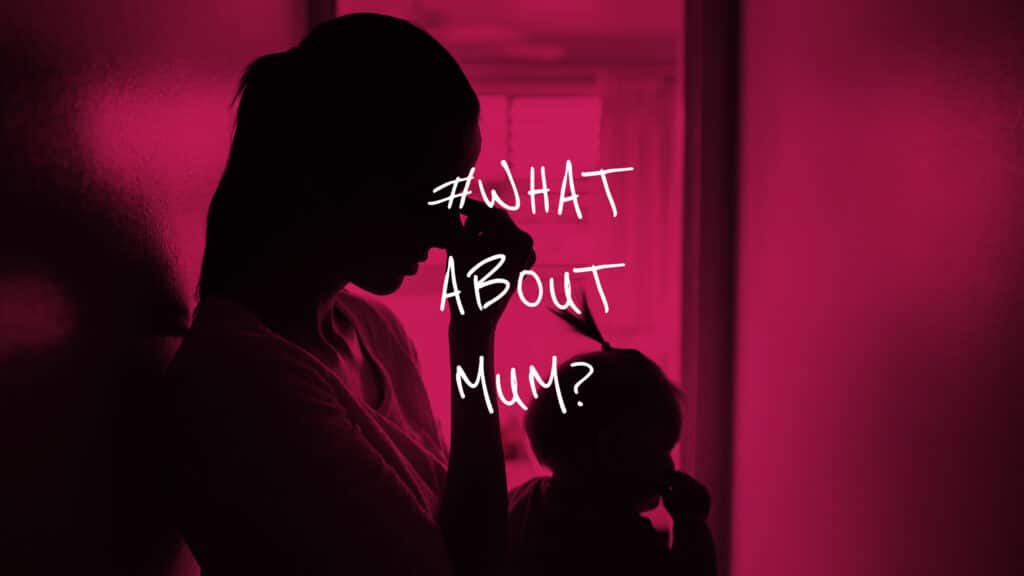
Read our What About Mum report
Find out what happens when we asked 'What About Mum?'
Our maternal injury solicitors recently ran a survey into how new mums feel about treatment for their physical and mental health, before, during and after birth.
